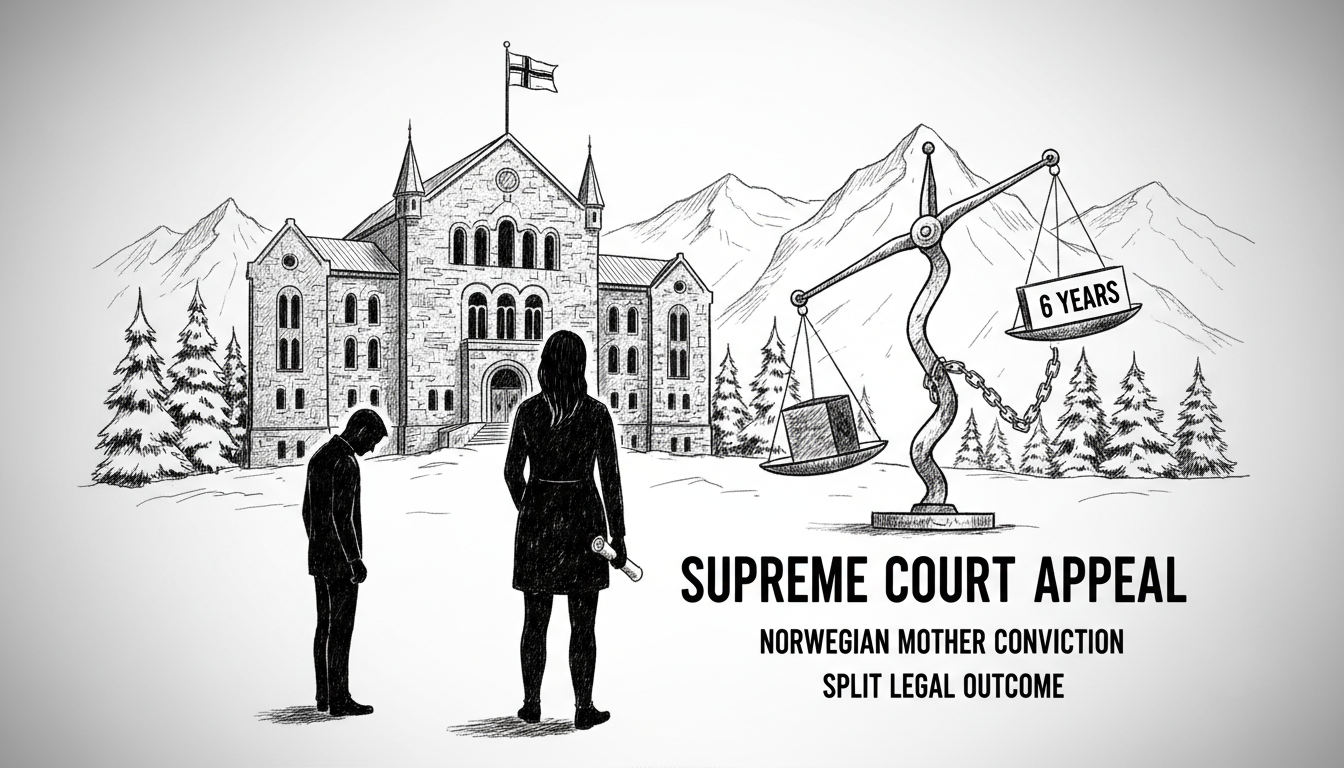A Norwegian woman convicted of sexually abusing her own children has appealed her verdict to the country's Supreme Court. The Eidsivating Court of Appeal previously sentenced her to six years of preventive detention with a minimum term of four years.
The state prosecutor confirmed the appeal has been filed. The woman's defense attorney declined to comment on the ongoing case. It remains uncertain whether the Supreme Court will accept the appeal for review.
This case involves serious child abuse allegations within a family home. Both the mother and her former partner faced convictions for the crimes against their children. The legal proceedings highlight Norway's strict approach to child protection cases.
The man received a different sentence of ten years and three months in prison but avoided preventive detention. His defense lawyer stated the man has accepted his verdict without appeal. This creates an unusual situation where only one parent continues to challenge the convictions.
Norway's legal system treats child abuse cases with particular severity. The country has strong child protection laws developed over decades. Norwegian courts often impose substantial sentences for crimes against children, especially when committed by parents.
Preventive detention represents one of Norway's most serious sentencing options. This measure allows for extended confinement beyond typical prison terms. Courts reserve it for offenders deemed likely to reoffend or requiring extensive rehabilitation.
The appeal process in Norway's Supreme Court is selective. The court typically accepts cases that raise important legal questions or involve potential judicial errors. This case could establish precedents for future child abuse prosecutions.
International readers should understand Norway's commitment to child welfare. The country's Barnevernet (Child Protection Service) has extensive authority to intervene in family matters. This case demonstrates how Norwegian courts handle the most severe child protection violations.
Legal experts note that appeals in such high-profile cases often focus on procedural matters or sentencing severity. The Supreme Court's decision to hear the appeal could signal important legal developments in Norwegian child protection law.
The case continues to draw attention to Norway's approach to familial abuse cases. The outcome may influence how similar cases are handled throughout the Nordic region. All Scandinavian countries maintain strong child protection systems with similar legal frameworks.
What happens next depends on the Supreme Court's review process. If accepted, the appeal could take months to resolve. If rejected, the original verdict stands and the woman must serve her sentence. The legal saga continues while the children remain in protective custody.

